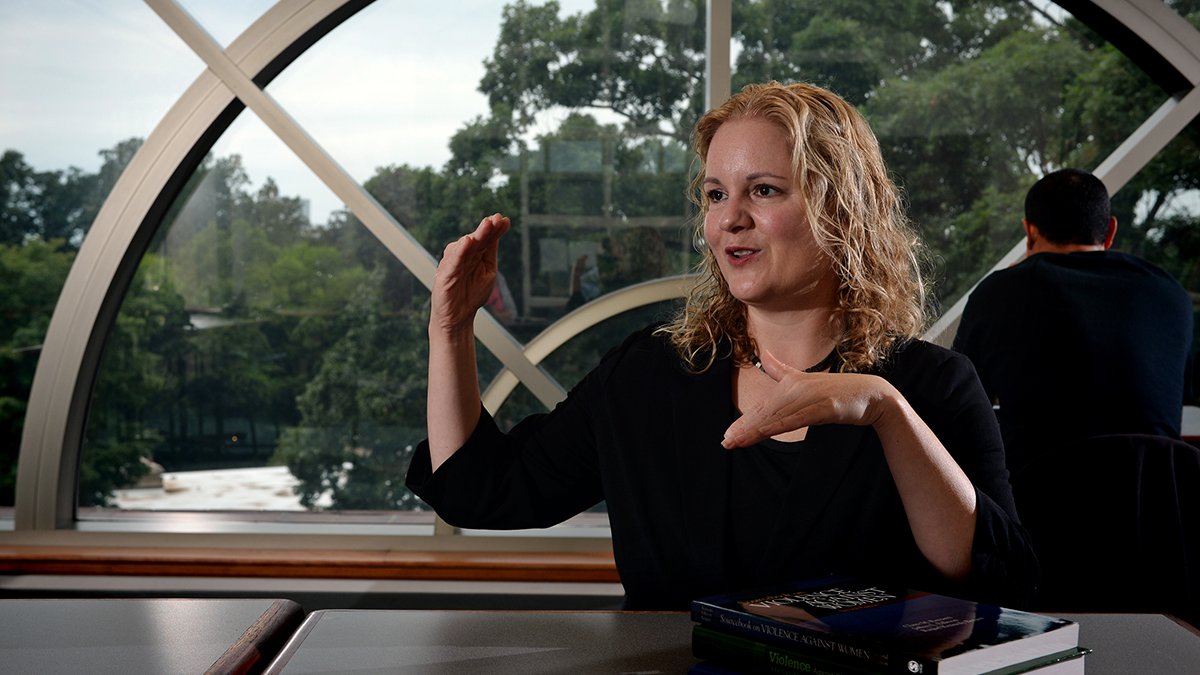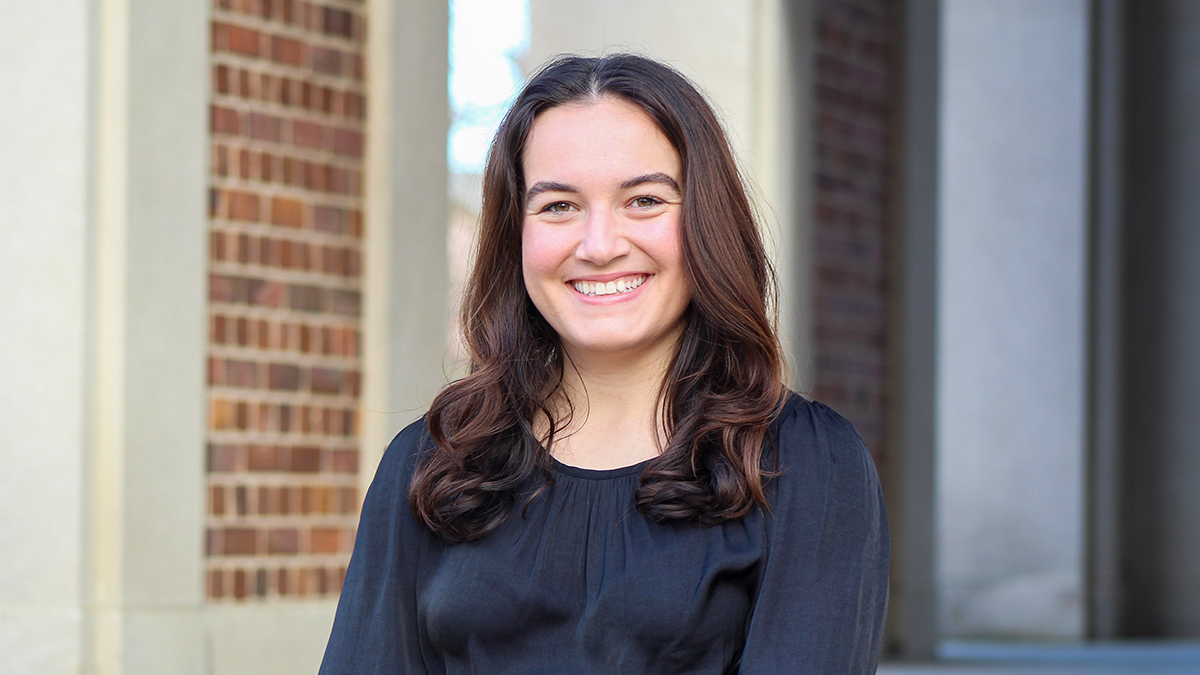Macy: Ending domestic violence with community-based research
Rebecca Macy and her research team worked with MOVE to collect data on women's experiences with domestic violence.

According to the Centers for Disease Control and Prevention, 20 people per minute are victims of physical violence by an intimate partner in the United States. One in four women will experience this kind of violence, which can cause significant difficulty with physical and emotional health long after the threat of violence is gone.
From her position at the School of Social Work, Rebecca Macy is working to end that violence and heal the survivors as quickly as possible. She looks for the innovative practices of social workers in the field to quantify the outcomes with real data that can lead to best practices nationwide.
“Research informs practice, and practice informs research,” said Macy, associate dean and L. Richardson Preyer Distinguished Chair for Strengthening Families. “This is especially important in social work because not all the innovative ideas are going to come out of a university.”
It’s her hope that pooling the resources of social work services in North Carolina with those of a major research university will bring quicker resolution to the devastating and complicated issues of gender-based violence.
“Social workers are doing a lot of innovative things to solve these problems. They see a problem, and they tackle it,” said Macy. “What we do is put a rigorous research study behind those programs in order to develop best practices that those delivering services can use to stop this problem and help survivors.”
Positive practices and real results
MOVE, Mothers Overcoming Violence through Education and Empowerment, started in 2007 to help women who had been mandated by the court system or Child Protective Services to attend an interpersonal violence intervention program. It’s the project of two nonprofit groups in North Carolina: InterAct of Wake County, which provides interpersonal violence services, and SAFEchild Raleigh, which offers child abuse prevention services.
Macy and her research team worked with MOVE to shape a study and collect data at different phases of the women’s participation.
“It became clear that participants’ lives were changing. They were leaving violent partners, strengthening parenting practices and seeing hope in one another’s successes,” said Macy.
To keep reading this story, visit the University Gazette.




